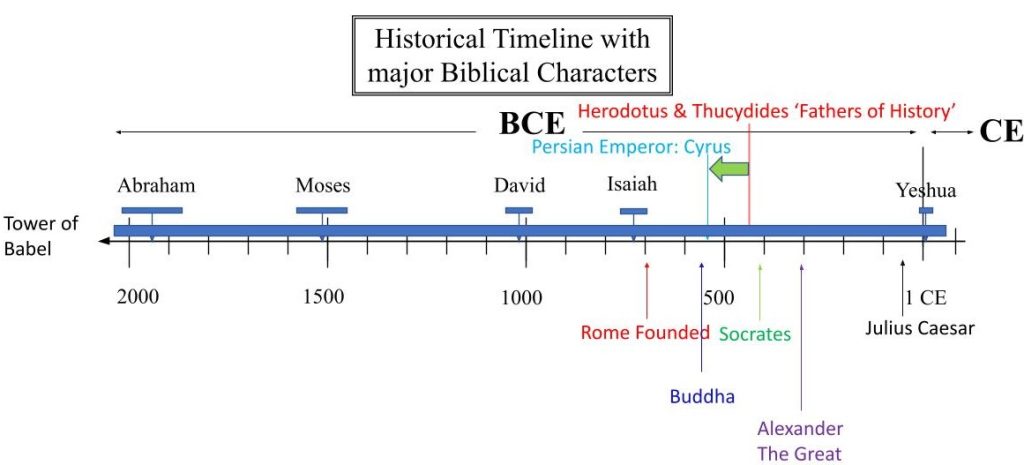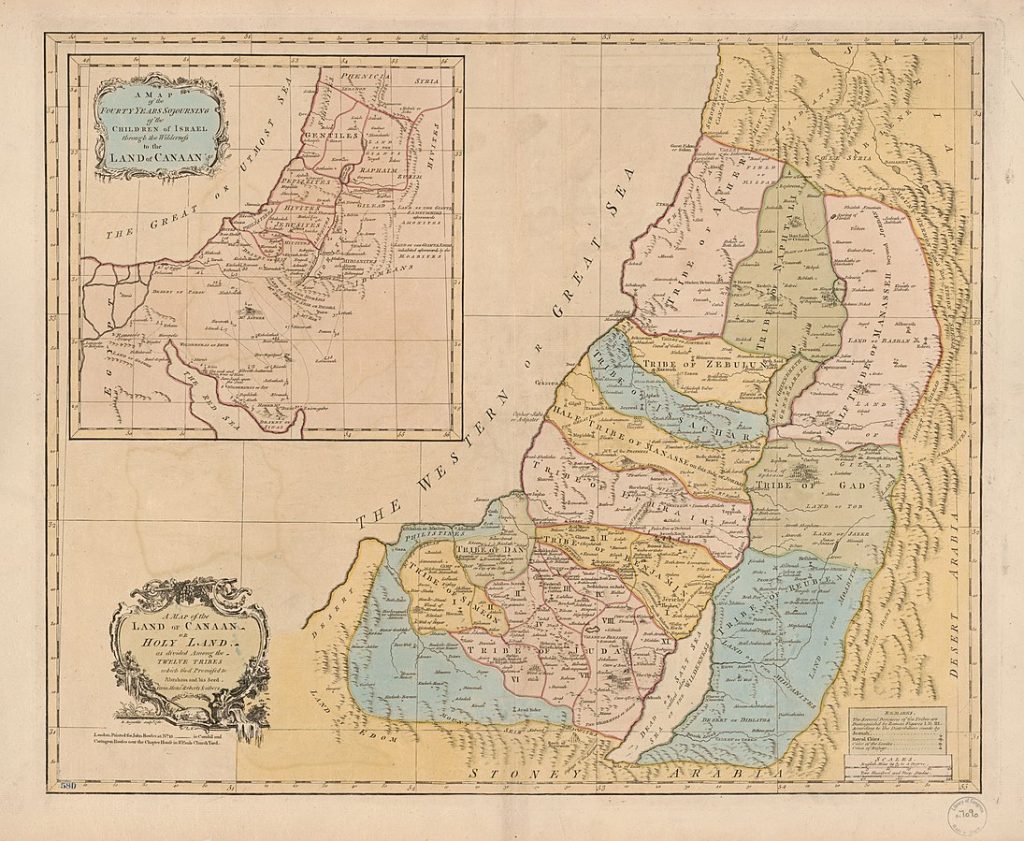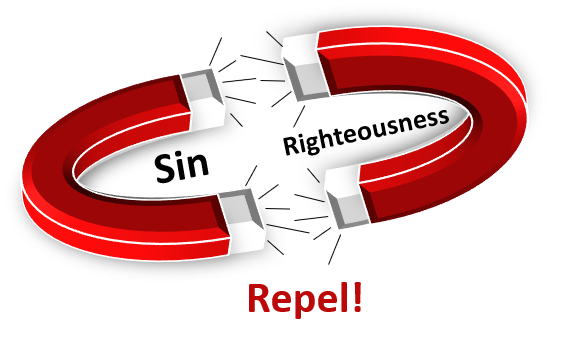As I write this article the world’s attention is focused on multiple sporting championships. The American NFL is heading for the Super Bowl. The hockey and basketball champions for this year will soon be decided. And while these dramas have North American fans riveted, much of the rest of the world is focused on the Australian Open Tennis Grand Slam. Then there are always soccer (football) matches and championships.
Even with all the attention focused on these championships; they will still be largely forgotten in about six months. What the world takes great note of today will be quickly forgotten as our attention moves on to other amusements, championships or political events. The highlight one day quickly becomes forgotten history the next.
We saw in our previous article that this was also true in Abraham’s day. The important and spectacular contests, achievements and drama that held the attention of people living 4000 years ago are now totally forgotten, but a solemn promise spoken quietly to an individual, though totally overlooked by the world back then, is growing and unfolding before our eyes.
The account of Abraham in the Torah continues with further encounters with this Promise-Making Lord – Blessed be He. Abraham (and we who follow his journey) learns much more – even moving from history to the eternal. The story of Abraham is not a trendy but quickly forgotten event like those today; it is one of an unnoticed man taking hold of eternity, so we’d be wise to take note.

Abraham’s Complaint
Several years have passed in Abraham’s life since the Promise of Genesis 12 was spoken. Abraham had made Aliyah to Canaan in what is today Israel. Other memorable events had occurred in his life – except the very one that he waited for – the birth of his son through whom this promise would be fulfilled. So we continue in the Torah with Abraham’s complaint:
After this, the word of the LORD came to Abram in a vision:
“Do not be afraid, Abram.
I am your shield,
your very great reward.”
But Abram said, “O Sovereign LORD, what can you give me since I remain childless and the one who will inherit my estate is Eliezer of Damascus?” And Abram said, “You have given me no children; so a servant in my household will be my heir.” (Genesis 15:1-3)
G-d’s Promise
Abraham had been camping in the Land awaiting the start of the ‘Great Nation’ that had been promised him. But nothing had happened and by this time he was around 85 years old. He complained that G-d, blessed be He, was not keeping that Promise given to him. Their conversation continued with:
Then the word of the LORD came to him: “This man will not be your heir, but a son coming from your own body will be your heir.” He took him outside and said, “Look up at the heavens and count the stars—if indeed you can count them.” Then he said to him, “So shall your offspring be.”
Genesis 15:4-5
Here the Lord, Blessed be He, basically repeated His initial promise by declaring that Abraham would get a son that would become a people as uncountable as the stars in the sky – many for sure, but hard to number. In our time today we know this has literally come true in the Jewish people. But back then, this promise would have seemed unbelievable.

Bowles, John, PD-US-expired, via Wikimedia Commons
Abraham’s Response: Everlasting Effect
How would Abraham respond to this Promise? What follows is a sentence that the Bible itself treats as one of the most important sentences in the Bible (since this sentence is quoted several times later on). It helps us understand how shalom with G-d is obtained. It says:
Abram believed the LORD, and he credited it to him as righteousness.
Genesis 15:6
It is probably easier to understand this sentence if we replace the pronouns with names, making it read:
Abram believed the LORD, and the LORD credited it to Abram as righteousness.
Genesis 15:6
It is such a small and inconspicuous sentence. It comes and goes with no championship fanfare and so we might miss it. But it is truly significant because in this little sentence Abraham obtains ‘righteousness’. This is the one – and the only one – quality that we need for shalom with G-d, Blessed be He.
Reviewing our Problem: Corruption
Though mankind was made in the image of G-d (Genesis 1:26-27) something happened that corrupted that image. Now the Bible says that
The LORD looks down from heaven on the sons of men to see if there are any who understand, any who seek God. All have turned aside, they have together become corrupt; there is no one who does good, not even one.
Psalm 14:2-3

This diagnosis covers all peoples: Jew and Gentile, Arab and Israeli, male and female, educated and simple. The corruption of elves to orcs in the Lord of the Rings movies and how the Bible uses the word ‘miss’ have helped me picture what is meant by ‘become corrupt’ in Psalm 14. The end result is that we find ourselves separated from Adonai the Lord, Blessed be He, because we have no righteousness. Our corruption has launched us into autonomy from and a tendency to not do good – reaping futility and death as a result. If you doubt that just scan some news headlines and see what people have been up to that last 24 hours – and it is pretty much the same all over the world. What else is a Righteous G-d to do, but to declare us all unrighteous?
In fact we are separated from the Source of Life and so the words of the prophet Isaiah come true
All of us have become like one who is unclean, and all our righteous acts are like filthy rags; we all shrivel up like a leaf, and like the wind our sins sweep us away.
Isaiah 64:6
Abraham and Righteousness
But here in the conversation between Abraham and the Lord, Blessed be He, we find, slipped in so quietly that we can almost miss it, the declaration that Abraham had gained ‘righteousness’ – the kind that G-d accepts. So what did Abraham ‘do’ to get this righteousness? It was not circumcision – that step came years later (in Genesis 17). The Ten Commandments and the other Laws of Moses came hundreds of years later, so it was not his observance of kosher food and the many other regulations governing life and diet – good though they are. The Bible simply says here that Abraham ‘believed’. That’s it?! When you think of the elaborate observance of many Jews, and even look wider afield at the observances of peoples in other religions and read that Abraham, gained the prize of righteousness simply by ‘believing’ it seems to utterly unbelievable – too good and too simple to be possibly true.
But what does ‘believe’ mean? And what can we learn for our own righteousness? We reflect on this later.